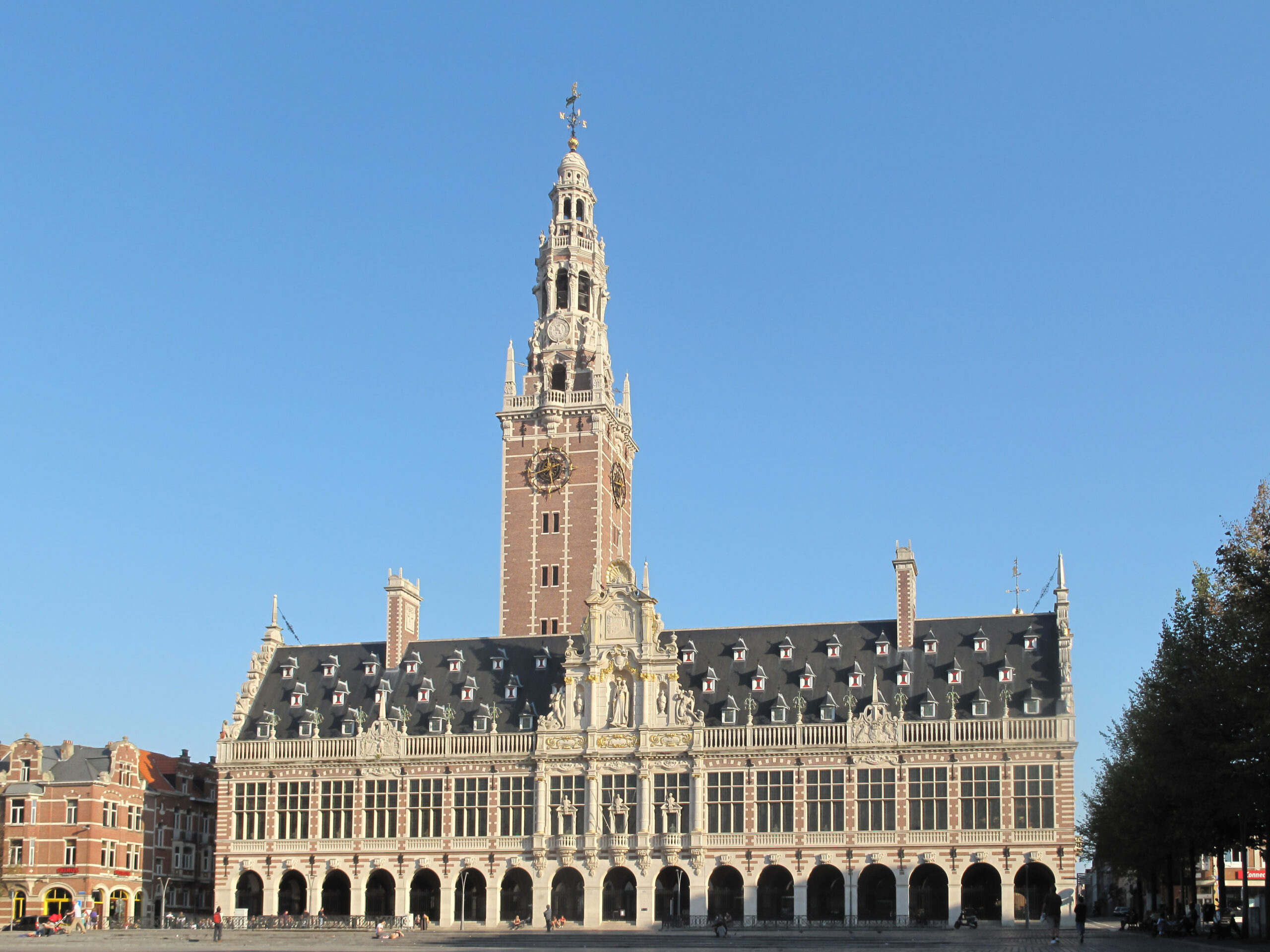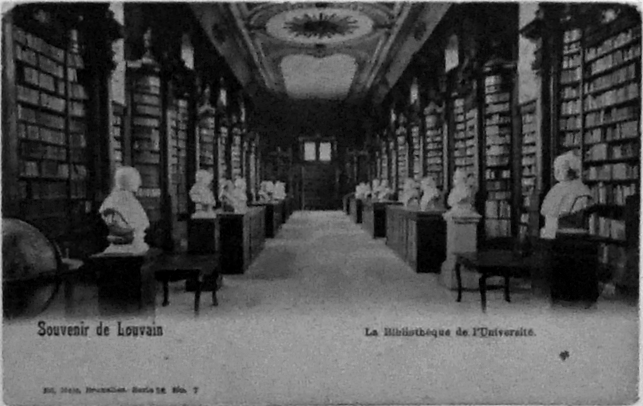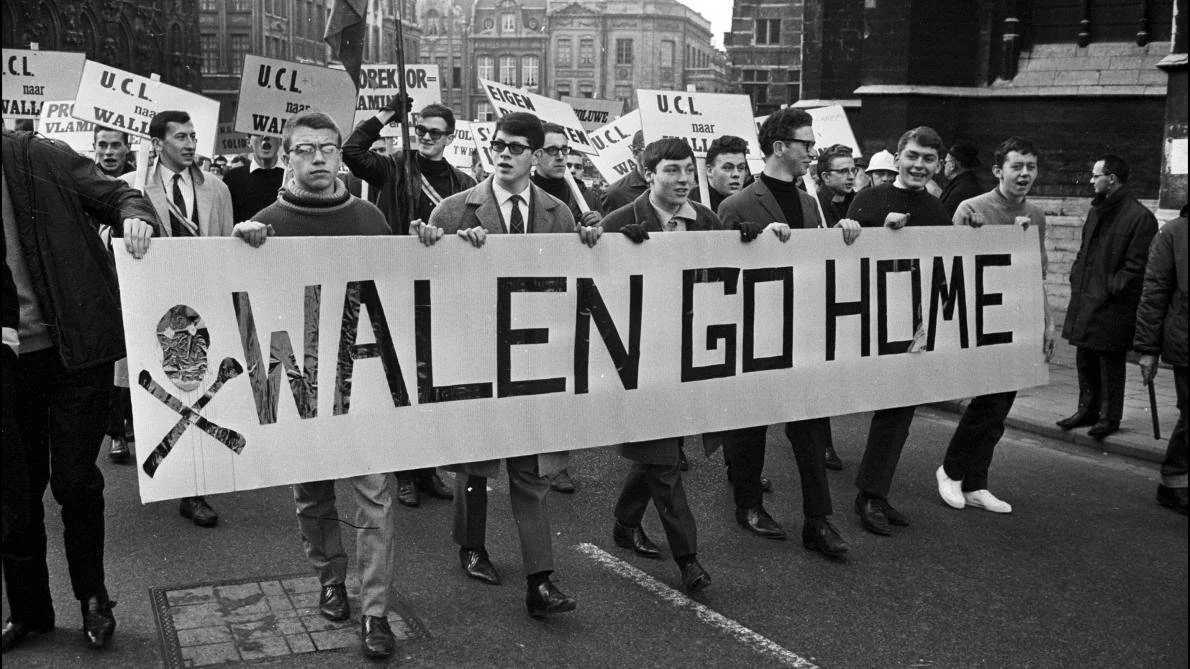Pope Francis’s visit to Leuven and Louvain-la-Neuve in September kicked off the celebrations during this academic year amongst students, professors and staff of KU Leuven and UCLouvain of what both institutions regard as their 600th anniversary.
But was it really their university that was founded in 1425? It’s a question that forces us to scrutinise two of the most turbulent episodes in Belgium’s history.
Before doing so, a little quibble about the date of the celebration. In 1425, John IV, Duke of Brabant, decided to create a university in his duchy, as his nephew and (soon) successor Philip the Good had done in Dole (Burgundy) three years earlier. Brussels was the first location considered, but for fear of student riots, the local authorities declined. Leuven, however, was more receptive, and on December 9, 1425, Pope Martin V allowed the creation of a Studium Generale Lovaniense that would comprise three faculties: arts, law and medicine.
The activities of what was later commonly called Universitas Lovaniensis started the following year. In fact, 1426 was regarded as its birth year until the original of the papal bull was repatriated from a Dutch monastery in 1909. This should have made 2025-26 more appropriate than 2024-2025 for the celebration of six centuries.
But the impatience is understandable. Where academic institutions are concerned — not individual academics — old age is widely, though perhaps not so wisely, regarded as an indicator of excellence. Hence, the sooner an institution starts drawing public attention to how ancient it is, the better for its prestige.
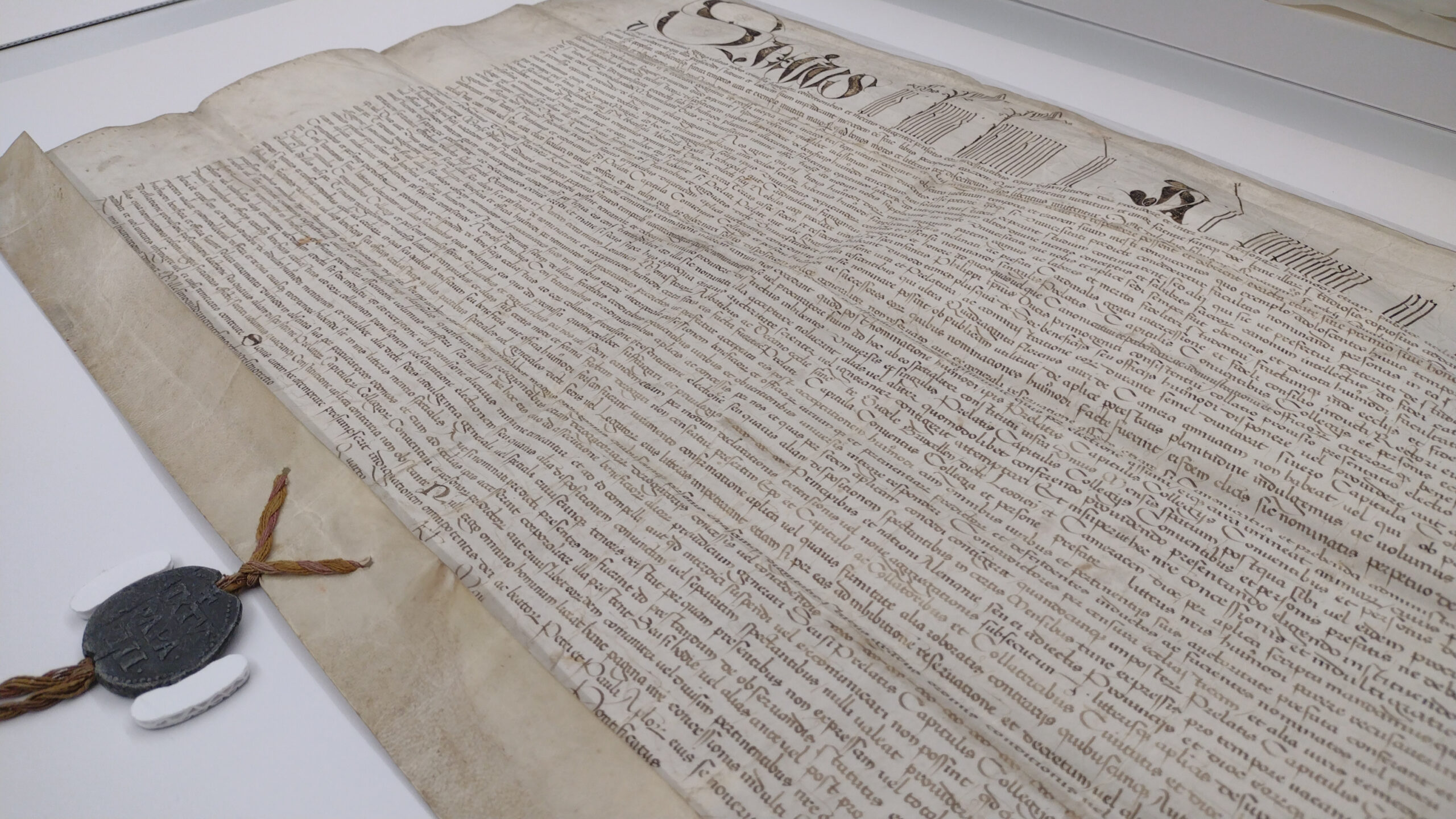
The restored charter collection of the KU Leuven University, in Leuven, Wednesday 10 November 2021. Credit: Belga
All the more so because of the age difference with other nearby universities. Founded in 1575 by William of Orange (whose son was kidnapped on the orders of King Philip II of Spain while a student in Leuven), the University of Leiden is 150 years younger. The age gap stretches to four centuries with the universities of Ghent and Liège founded in 1817 by King William I of the Netherlands, shortly after the start of his brief reign over Belgium.
Can KU Leuven and UCLouvain, however, really say that the Universitas Lovaniensis — the university of Erasmus, Vives, Justus Lipsius, Mercator, Vesalius, Jansenius and so many others — is their university? Didn’t the university founded in 1425 suffer a sudden death at the end of the 18th century?
In November 1792, the French revolutionary troops invaded the Austrian Netherlands, or southern Low Countries (roughly today’s Belgium, back then part of the Habsburg Empire). On October 17, 1797, France and Austria agreed in the Treaty of Campo Formio that this territory would henceforth be integrated in the newly-established French Republic. A few days later, a decree of the Département de la Dyle abolished the Universitas Lovaniensis. Its rector, Jean-Joseph Havelange, was sentenced to forced labour in French Guiana, where he died in 1798.
The university’s equipment and library were transferred to a newly created Ecole Centrale de Bruxelles. In 1806, after the French Republic became an empire under Napoleon, it was renamed Université impériale de Bruxelles. It was housed in the (still standing) Palace of Charles de Lorraine, next to the Place Royale, at the top of the Mont des Arts.
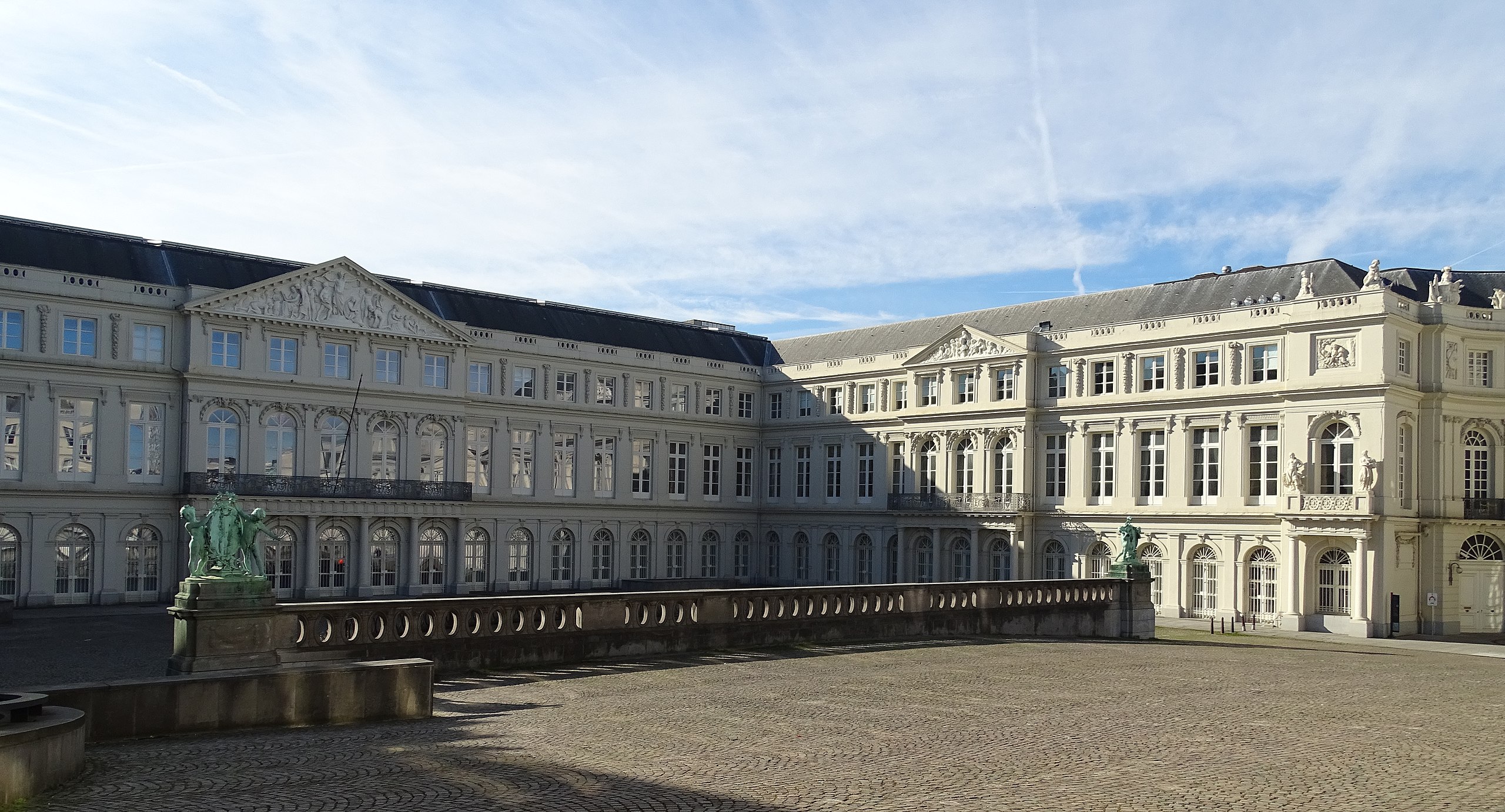
Brussels Palace of Charles of Lorrain, seat of the Université impériale de Bruxelles
The whole of Belgium’s higher education was then concentrated in Brussels. But this did not last long. Napoleon lost at Waterloo, and in 1815, the Treaty of Vienna reunified the Northern and Southern low countries under the Dutch King William I. The Université impériale de Bruxelles disappeared, and three state universities were created in 1817: in Ghent and Liège, but also in Leuven, using the old buildings abandoned 25 years earlier.
Université libre versus Université catholique
This trio of state universities did not last long, either. In 1830, Belgium declared its independence from the Netherlands and in 1831 adopted a liberal constitution that granted, among other fundamental liberties, a liberté d’enseignement that permitted the creation of private universities.
In 1834, freemasons used that freedom to found the Université libre de Belgique. It was initially housed in the Palace of Charles de Lorraine and from 1842 — the year it changed its name to Université libre de Bruxelles (ULB) — in the Palais Granvelle, next to the cathedral, built in the 16th century as the residence of the first archbishop of Mechelen-Brussels.
In the same year, the Catholic bishops founded the Université catholique de Belgique in Mechelen, the official seat of the archdiocese since the 16th century. One year later, the newly created Catholic university moved from Mechelen to Leuven, appropriated the old buildings of Leuven’s ephemeral state university and renamed itself Université catholique de Louvain (UCL).
Until the beginning of the 20th century, 1835 was regarded and celebrated as the university’s founding year. In the context of the chronic tensions between liberals and Catholics and with liberal governments in power most of the time, the celebrations served to express and strengthen the catholic pillar’s commitment to its university.
Since 1925, however, it is instead the founding of the Universitas Lovaniensis that has been celebrated every quarter century. A multi-secular continuity was thereby asserted, while the four chaotic decades between the abrupt abolition in 1797 and the miraculous Catholic reoccupation in 1835 were bracketed out as an ephemeral aberration.
Yet a close look at what happened in those four decades provides some support to the view that the Louvanistes are cheating when claiming that their university is six centuries old. Stricto sensu, they may be willing to concede, it is not older than the Université libre de Belgique and barely older than the Université libre de Bruxelles.
Walloons, go home!
There is, however, a second turbulent episode that undermines the continuity claim at least as much as the first one. It is not about an interruption, but about a scission. It is not about the conflict between liberals and Catholics, but about the conflict between French and Dutch-speakers.
The Universitas Lovaniensis operated mainly in Latin until the end of the 18th century, when the French revolutionaries shut it down. The Université catholique de Louvain, created in 1835, operated in French from the start. At first, French dominance did not give rise to any more problems than did the earlier dominance of Latin.
But access to higher education spread and the Flemish emancipatory movement grew stronger. From 1911 onwards, some courses were given in Dutch, and from 1930 onwards, most study programmes were offered in both Dutch and French by the (by then) officially bilingual UCL-KUL.
Flemish students protests with a sign saying "Walloons go home".In the 1960s, the fast-growing student population combined with fears that the university’s expanding francophone section would irreversibly swell the francophone “oil stain” between Leuven and Brussels. It became increasingly problematic to host Belgium’s largest francophone university in the Flemish town of Leuven. The strong, sometimes violent tensions to which this led are still associated today with the slogans the students used: “Leuven Vlaams” and “Walen buiten” (‘Flemish Leuven’, ‘Walloons out’).
In 1968, these tensions brought down the national government and sowed the seeds of the subsequent splitting of all national parties. Above all, they precipitated the decision to transfer the francophone section to what was to be called Louvain-la-Neuve, literally ‘New Leuven’, a completely new town to be built 30km to the south, on the other side of the language border.
In 1970, the university split was officialised and two distinct institutions were created: the Katholieke Universiteit Leuven (since 2011 KU Leuven) and the Université catholique de Louvain (since 2017 UCLouvain). Of the university (re)created in Leuven in 1835, the former kept the (Flemish) location and the latter the (French) name.
In the same year, similar pressure led the University of Brussels to cleave along language lines, but without requiring a similarly traumatic 30km move, with the Université libre de Bruxelles (ULB) and the Vrije Universiteit Brussel (VUB) becoming distinct institutions just a few hundred metres apart.
Back together in Brussels ?
The move to Louvain-la-Neuve, initially strongly resisted and then bitterly resented by most of the francophone professors (not the students) occurred at a fast pace between 1972 and 1978. Among many other things, it meant dividing up the university library’s collections, with most works just divided by shelf mark: odd numbers stayed in Leuven, even numbers left for Louvain-la-Neuve (or the other way around). Given that books were exchangeable after the initial allocation, this was not the pinnacle of absurdity – as some claimed – but a simple way of making a regrettable split at the same time as fair and as efficient as possible.
More importantly, several intelligent choices were made when designing Louvain-la-Neuve. Before anything else, a railway link was built, with the university’s rectorate on top of the station, and the new, pedestrian town was inspired by medieval European towns rather than by 20th-century American campuses. So, against the odds, Louvain-la-Neuve proved an academic success, as well as an invaluable economic asset for the Walloon region.
It took a while for the relations between the sister universities to thaw, but they are now better than they have ever been since the split and there are countless collaborations. These are helped by the fact that the two universities compete neither for students (they attract them from two linguistically distinct recruitment pools) nor for subsidies (they are funded by two distinct autonomous governments) — and by the fact that both now operate bilingually, with English (today’s Latin) added to their official language.
Happy end
And thanks to an unlikely sequence of events, the two universities are even set to share the same site again – not in Leuven but in the centre of Brussels.
When the Université catholique de Belgique left Mechelen for Leuven in 1835, the vacated building was used to create in 1838 an Ecole de commerce et d’industrie, which moved to Brussels in 1858 and took the name Institut Saint Louis. Out of this institute grew, in 1948, the Faculté universitaire Saint Louis (FUSL), renamed Université Saint Louis Bruxelles (USLB) in 2013. And out of this francophone institution grew in turn, in 1973, the Universitaire Faculteiten Sint Aloysius (UFSAL), renamed Katholieke Universiteit Brussel (KUB) in 1991. Both were independent institutions.

Inside KU Leuven's library
However, KU Leuven absorbed the KUB in 2013, and UCLouvain absorbed the USLB in 2023, thereby strengthening their respective presence in Brussels — already quite significant, given that UCLouvain’s medicine faculty was transferred from Leuven to the Brussels commune of Woluwe-Saint-Lambert in 1970.
In 2021, Belfius bank said it would sell a building on Boulevard du Jardin Botanique next to the USLB site, now part of UCLouvain – adding that it should be used for educational purposes. And who bought it? The KU Leuven. Fifty years after the last Francophones left the shared buildings in Leuven, both universities will soon be living cheek-to-cheek once again. One more reason, no doubt, for them to celebrate something together.
As explained above, whether this something can legitimately be the 600th anniversary of the creation of their university is open to debate. What can certainly be celebrated, however, is the 600th anniversary of the presence of higher education in what is now Belgium. Higher education is arguably much more important for our regions today than it was in 1425. It is therefore something all of us in Belgian higher education and beyond should celebrate. Not only the Louvanistes.
Full disclosure: The author is professor emeritus at UCLouvain and special guest professor at KULeuven.

